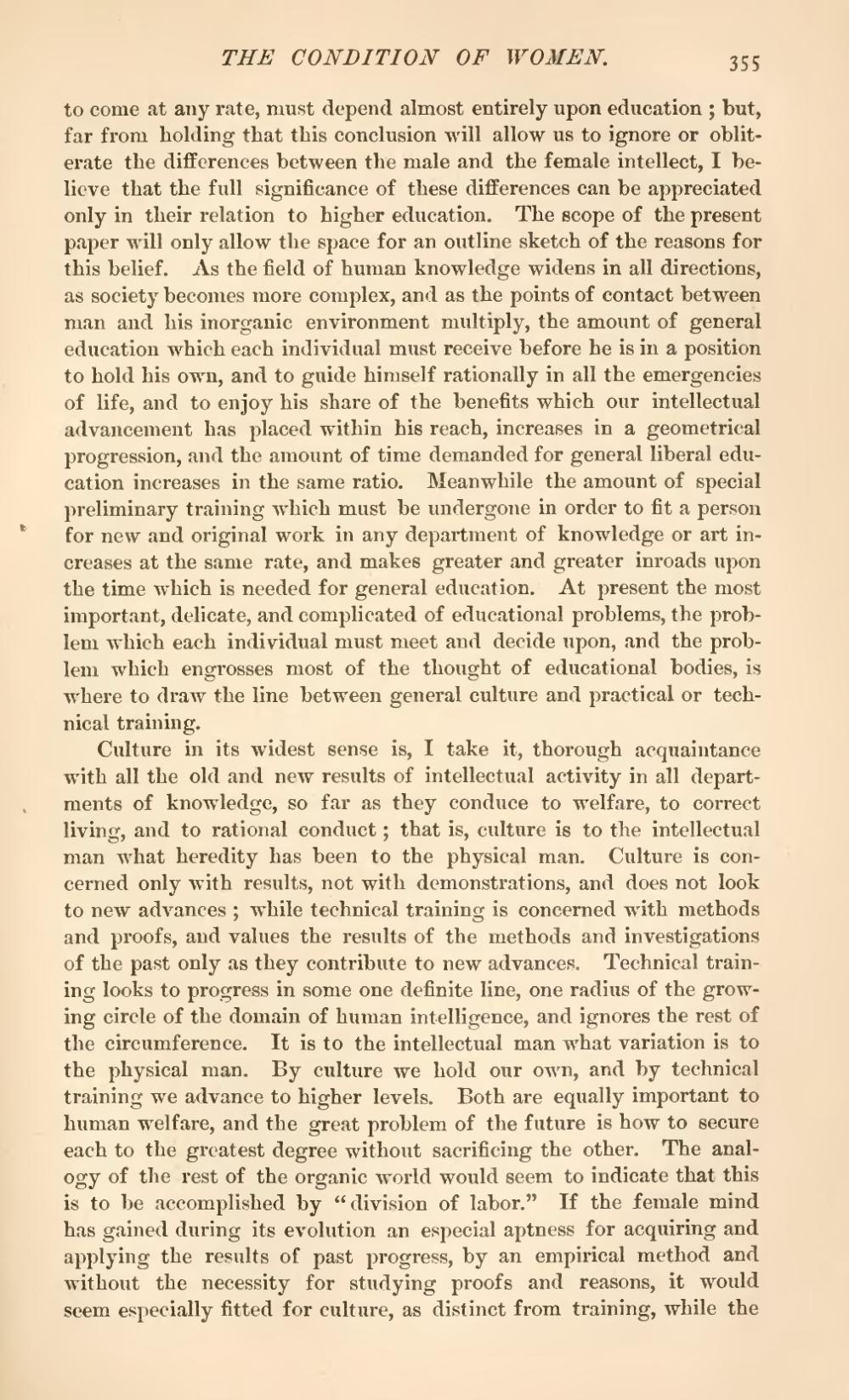to come at any rate, must depend almost entirely upon education; but, far from holding that this conclusion will allow us to ignore or obliterate the differences between the male and the female intellect, I believe that the full significance of these differences can be appreciated only in their relation to higher education. The scope of the present paper will only allow the space for an outline sketch of the reasons for this belief. As the field of human knowledge widens in all directions, as society becomes more complex, and as the points of contact between man and his inorganic environment multiply, the amount of general education which each individual must receive before he is in a position to hold his own, and to guide himself rationally in all the emergencies of life, and to enjoy his share of the benefits which our intellectual advancement has placed within his reach, increases in a geometrical progression, and the amount of time demanded for general liberal education increases in the same ratio. Meanwhile the amount of special preliminary training which must be undergone in order to fit a person for new and original work in any department of knowledge or art increases at the same rate, and makes greater and greater inroads upon the time which is needed for general education. At present the most important, delicate, and complicated of educational problems, the problem which each individual must meet and decide upon, and the problem which engrosses most of the thought of educational bodies, is where to draw the line between general culture and practical or technical training.
Culture in its widest sense is, I take it, thorough acquaintance with all the old and new results of intellectual activity in all departments of knowledge, so far as they conduce to welfare, to correct living, and to rational conduct; that is, culture is to the intellectual man what heredity has been to the physical man. Culture is concerned only with results, not with demonstrations, and does not look to new advances; while technical training is concerned with methods and proofs, and values the results of the methods and investigations of the past only as they contribute to new advances. Technical training looks to progress in some one definite line, one radius of the growing circle of the domain of human intelligence, and ignores the rest of the circumference. It is to the intellectual man what variation is to the physical man. By culture we hold our own, and by technical training we advance to higher levels. Both are equally important to human welfare, and the great problem of the future is how to secure each to the greatest degree without sacrificing the other. The analogy of the rest of the organic world would seem to indicate that this is to be accomplished by "division of labor." If the female mind has gained during its evolution an especial aptness for acquiring and applying the results of past progress, by an empirical method and without the necessity for studying proofs and reasons, it would seem especially fitted for culture, as distinct from training, while the

